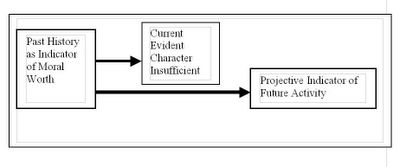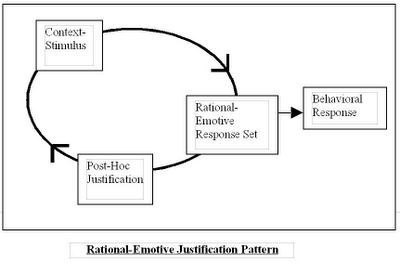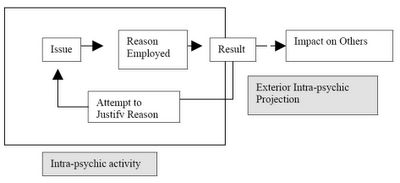Max Nordau explains this self-indulgent vindication pattern in similar terms:
Many mental conditions and operations of which we become conscious are the result of causes which do not reach our consciousness. In this case we fabricate causes a posteriori for them, satisfying our mental need of distinct causality, and we have no trouble in persuading ourselves that we have now truly explained them. The degenerate who shuns action, and is without will-power, has no suspicion that his incapacity for action is a consequence of his inherited deficiency of brain. (p. 20). The primary argument sustained within the quote above is that man justifies himself even after negative consequences to his actions can be observed. Whereas Nordau aims this criticism at the
Fin-De-Siecle this argument can also be aimed at anyone else who is corrupt, indecent, and sociopathic. A lack of moral direction and proper socialization (i.e., upbringing), whether innate or stemming from external factors, results in the same self-indulgent post-hoc reasoning evident in most cases of so-called impending need. When this need affects others and the consequences violate other’s rights and/or interests it does not matter the quality of the post-hoc reasoning behind the behavior. Where activity is argued to be of necessity the lack of activity when morality demands it is still justified in the same post-hoc vein; selfishly.
When the behavior of our political advocates indicates a detachment from the communal need and interest the consequences have been significant. These consequences are difficult to avoid except for cases where the political advocate’s individual past provides examples and thus indication of their
moral character. When this moral character is indication of inadequate judgment in then becomes our responsibility to not elect them to office. Although our reasoning stems from the same rational-emotive cycle it has the unique context-stimulus benefit of being anchored in our national history. This national history, despite being selfish as well, has provided us ample evidence of what works for this nation and what does not. When one’s moral character, as presented in verbal argument, is insufficient for evaluating their appropriateness for political office it becomes our responsibility to look to their past to determine their true worth. The responsibility is yours.


End for now.



























